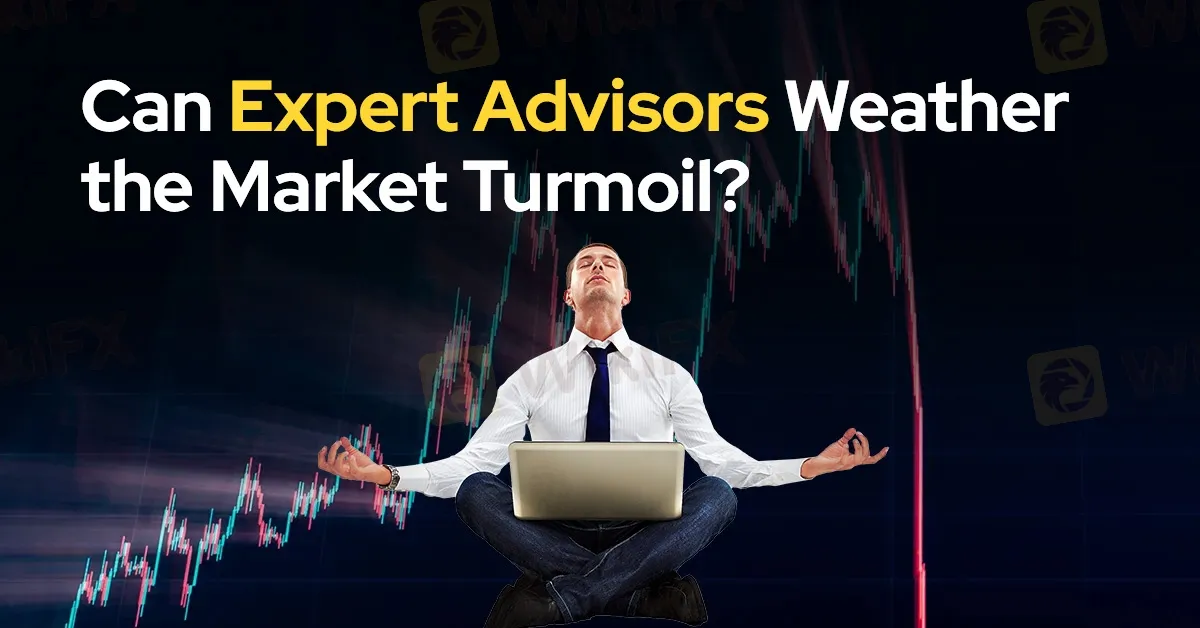简体中文
繁體中文
English
Pусский
日本語
ภาษาไทย
Tiếng Việt
Bahasa Indonesia
Español
हिन्दी
Filippiiniläinen
Français
Deutsch
Português
Türkçe
한국어
العربية
Can Expert Advisors Weather the Market Turmoil?
Abstract:Expert Advisors (EAs) have become the holy grail for many traders, promising automated profits with minimal effort. But, can they truly withstand market turmoil? Or are they simply gambling devices dressed up in technological garb?

Expert Advisors (EAs) have become the holy grail for many traders, promising automated profits with minimal effort. These digital trading assistants, armed with complex algorithms, are designed to analyse market data, identify trading opportunities, and execute trades with lightning speed. However, the allure of effortless wealth has led to a surge in EA adoption, raising questions about their ability to withstand the inevitable market turmoil.
Proponents of EAs argue that these systems can be a trader's best friend, capable of eliminating emotional biases and capitalizing on fleeting market opportunities. Back testing, a process of testing trading strategies on historical data, is often touted as a foolproof method for creating robust EAs. Yet, critics caution that past performance is no guarantee of future results, especially in the unpredictable world of finance.

Market turmoil, characterized by sharp price movements, increased volatility, and heightened uncertainty, is the ultimate test for any trading strategy, human or algorithmic. While EAs can theoretically adapt to changing market conditions through dynamic parameters, the speed and severity of market shocks can overwhelm even the most sophisticated systems. Moreover, black swan events—unforeseeable and high-impact occurrences—can expose the limitations of back testing, as historical data may not accurately reflect future market behaviour.
Another critical factor is the quality and expertise of the developers behind these EAs. Creating a profitable and resilient trading system requires a deep understanding of programming, statistics, and financial markets. While many EAs are available for purchase, the lack of transparency in their development process can lead to suboptimal performance and unexpected risks.
Furthermore, the regulatory landscape for automated trading is constantly evolving. As regulators grapple with the implications of high-frequency trading and algorithmic trading, the rules governing EAs may become more stringent. This could impact the profitability and legality of certain strategies.
Ultimately, the success of an EA depends on a combination of factors, including the underlying trading strategy, the quality of the code, the robustness of risk management, and the trader's ability to monitor and adjust the system. While EAs can be a valuable tool for experienced traders, they are not a guaranteed path to riches. As with any investment, caution and due diligence are essential.
The debate over the effectiveness of EAs in turbulent markets is far from settled. As technology continues to advance and market conditions fluctuate, the role of these automated systems will undoubtedly evolve. Whether they will ultimately prove to be reliable partners or fleeting fads remains to be seen.

Disclaimer:
The views in this article only represent the author's personal views, and do not constitute investment advice on this platform. This platform does not guarantee the accuracy, completeness and timeliness of the information in the article, and will not be liable for any loss caused by the use of or reliance on the information in the article.
Read more

Doo Financial Expands Regulatory Reach with Offshore Licenses in BVI and Cayman Islands
According to the report, Doo Group, a prominent Singapore-based online brokerage firm, has strengthened its global presence by securing new offshore licenses for its brokerage brand, Doo Financial. The company recently announced that entities under the Doo Financial umbrella have been granted licenses by two key offshore regulatory bodies: the British Virgin Islands Financial Services Commission (BVI FSC) and the Cayman Islands Monetary Authority (CIMA).

Why is there so much exposure against PrimeX Capital?
In recent months, PrimeX Capital, a Forex and CFD broker established in 2022, has become a subject of concern in the trading community. However, despite these enticing features, the broker's reputation has been severely tarnished by multiple complaints and a troubling lack of regulatory oversight.

The Hidden Checklist: Five Unconventional Steps to Vet Your Broker
Forex broker scams continue to evolve, employing new tactics to appear credible and mislead unsuspecting traders. Identifying these fraudulent schemes requires vigilance and strategies beyond the usual advice. Here are five effective methods to help traders assess the legitimacy of a forex broker and avoid potential pitfalls.

Doo Financial Obtains Licenses in BVI and Cayman Islands
Doo Financial, a subsidiary of Singapore-based Doo Group, has expanded its regulatory footprint by securing new offshore licenses from the British Virgin Islands Financial Services Commission (BVI FSC) and the Cayman Islands Monetary Authority (CIMA).
WikiFX Broker
Latest News
AIMS Broker Review
The Hidden Checklist: Five Unconventional Steps to Vet Your Broker
Russia to Fully Ban Crypto Mining in 10 Regions Starting January 1, 2025
YAMARKETS' Jingle Bells Christmas Offer!
Why is there so much exposure against PrimeX Capital?
Doo Financial Expands Regulatory Reach with Offshore Licenses in BVI and Cayman Islands
MTrading’s 2025 "Welcome Bonus" is Here
Doo Financial Obtains Licenses in BVI and Cayman Islands
CFI’s New Initiative Aims to Promote Transparency in Trading
Currency Calculator


